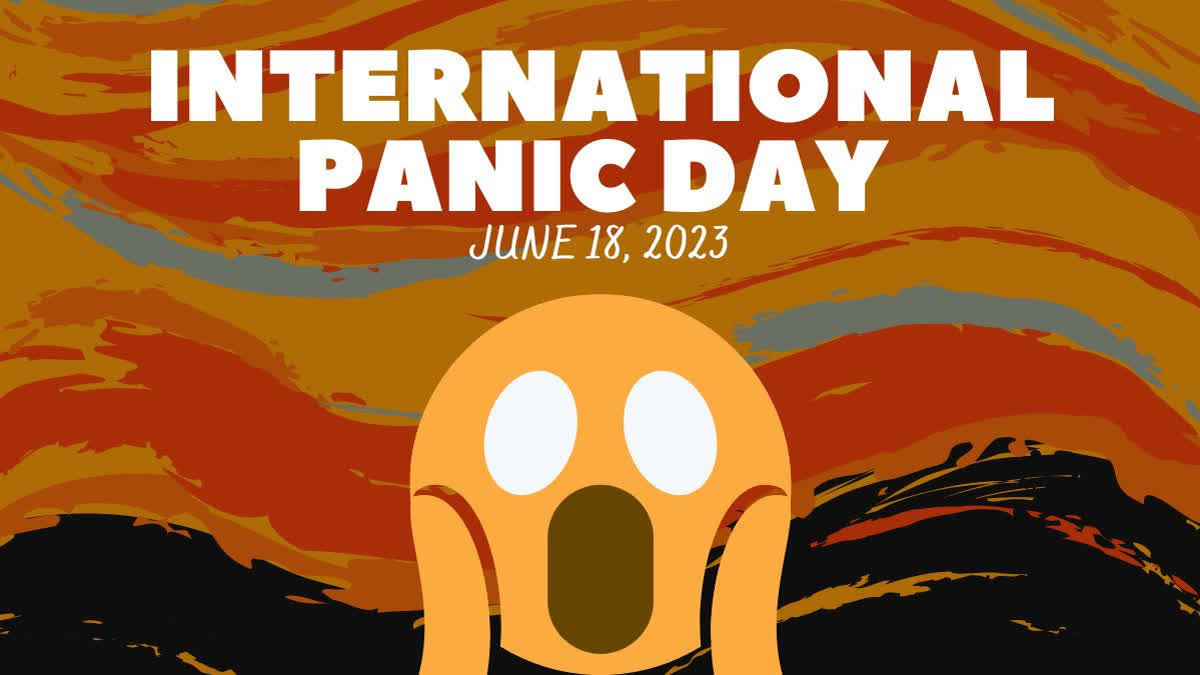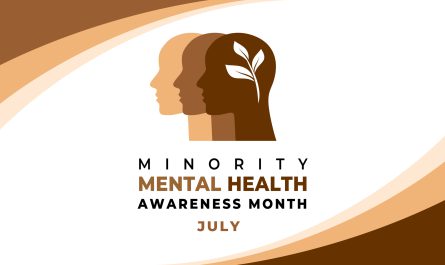International Panic Day
Title: International Panic Day: Cultivating Calmness
Moments of panic and anxiety are normal in a world where expectations are constantly increasing and stressors are omnipresent. In spite of such chaos, there is a day called International Panic Day where people are encouraged to practice calmness and spread awareness about panic disorders. Every year on the third Sunday in June, a special celebration is held to raise awareness of the importance of mental health and to encourage those who are struggling with panic attacks. Join us as we discuss the significance of International Panic Day and look into how to promote an understanding and resilient culture when faced with panic.
The Rise of International Panic Day:
The establishment of International Panic Day resulted from a united effort of individuals, organizations, and mental health advocates who were dedicated to raising awareness of panic disorders. Although the precise origins of this observance are unknown, it is thought to have gained popularity recently as public awareness of mental health issues has increased. The idea of this day to promote understanding, awareness, and support for people affected by panic, was motivated by the growing acknowledgment of panic disorders as a serious and genuine problem.
Understanding Panic – A inner storm
To raise awareness of panic disorders and the difficulties they pose, International Panic Day was created. Panic is a sudden surge of overwhelming fear or anxiety that can be accompanied by physical symptoms such as rapid heartbeat, shortness of breath, and sweating. It can cause people to feel out of control and engulfed in a storm of upsetting feelings.
Unexpected panic attacks may happen, as may reactions to known triggers like tense situations, public speaking, or traumatic events. They can cause problems in daily life, make it difficult to operate, and encourage avoidance behaviors that impede personal development and experiences. The existence of panic disorders and the need for empathy, comprehension, and care for people who are impacted by them are both highlighted by International Panic Day.
An individual’s functioning in different facets of life can be significantly impacted by panic due to its acute and overpowering character. To recognize the difficulties faced by those who are experiencing panic and to offer suitable assistance and solutions, it is essential to comprehend these effects. Let’s look at a few ways that panic might impair one’s functioning:
- Emotional Health: Panic frequently results in strong emotions of fear, worry, and distress. These feelings can be crippling and make it difficult to manage everyday responsibilities and keep one’s emotional well-being. Increased emotional sensitivity, impatience, and a persistent sense of impending doom brought on by panic attacks can make it difficult to participate in activities and keep up stable relationships.
- Physical Well-Being: A number of physical symptoms, such as a rapid heartbeat, shortness of breath, lightheadedness, chest pain, trembling, and sweating, can be a result of panic. People may seek medical assistance or refrain from engaging in particular activities out of concern that they would set off their panic symptoms because these physical sensations can be upsetting and mirror major health conditions. Chronic physical complaints can increase stress levels and have a negative influence on general physical health.
- Work and Academic Performance: Anxiety can have a substantial impact on both. It is possible for avoidance behaviors, such as missing work or school, avoiding presentations or speaking engagements, or avoiding social interactions, to result from the fear of having a panic attack in public or performance-related contexts. This avoidance can limit possibilities, impede professional advancement, and have a detrimental effect on one’s confidence and self-esteem.
- Social Interactions: An individual’s social life can be significantly impacted by panic. Social disengagement, isolation, and skipping out on social engagements might result from the fear of having panic attacks in public. It can be difficult to establish and sustain lasting relationships when a panic episode is accompanied by a persistent fear of being judged or shamed. This may exacerbate feelings of isolation, alienation, and poor quality of life.
- Personal Goals and Freedom: Anxiety can obstruct people from achieving their personal goals and freedom. Individuals may be reluctant to take on new challenges, travel, or engage in past passions due to a fear of inducing panic episodes. This can impede the development of self-confidence and resilience as well as opportunities for self-discovery and personal progress.
- Cognitive Functioning: Individuals may experience cognitive deficits during a panic attack, such as trouble focusing, racing thoughts, memory issues, and confusion. These cognitive symptoms can impede problem-solving skills, interfere with decision-making, and generally lower cognitive performance. It can also be difficult for people to concentrate on work or make wise decisions because of their ongoing fear of having panic attacks.
Building a Supportive Culture:
A key goal of International Panic Day is to provide a supportive environment for people who suffer from panic disorders. It promotes open discussions about mental health and offers people a secure setting in which to express their struggles, victories, and experiences. By raising our level of awareness and empathy, we can provide a network of support and understanding to those who are struggling with panic and help them feel less alone.
Promoting Effective Coping Techniques:
On the occasion of International Panic Day, it is also essential to discuss powerful coping mechanisms that help people control their panic. Despite the fact that everyone’s experience with panic is different, there are a number of approaches that can be helpful:
- Breathing & Grounding Techniques: To regulate your breath and produce relaxation, practice deep breathing techniques. Engage your senses and ground yourself in the here and now to focus on the present moment. This can be accomplished by naming five items that can be seen, four things that can be touched, three things that can be heard, two things that can be smelled, and one thing that can be tasted.
- Seeking Help: Speak with trusted friends, family members, or experts who can offer insight and guidance. Share your experiences and concerns with someone who can listen and guide you through stressful situations.
- Mindful Meditation: Make mindfulness practices a part of your everyday routine. Meditation, guided imagery, and mindfulness activities can assist to quiet racing thoughts, increase self-awareness, and improve concentration.
- Exercise & Physical Activity: Exercising on a regular basis releases endorphins, decreases stress, and increases general well-being. Find an exercise routine that you enjoy, such as yoga, walking, or dancing, and incorporate it into your self-care routine.
- Stress Management and Self-Care: Prioritize self-care activities that help reduce stress and promote relaxation. This can involve engaging in activities that bring joy and fulfillment, such as hobbies, taking breaks, getting adequate sleep, eating a balanced diet, and engaging in activities that bring joy and fulfillment.
- Cognitive-Behavioral Techniques: Reframe negative thinking with positive affirmations. Replace catastrophic thinking with realistic viewpoints, and keep in mind that terror is only transitory and manageable.
Educating the Public and Taking Initiatives:
On International Panic Day, people are urged to take part in activities including seminars, events, and internet campaigns to spread awareness about panic disorders. Social networking sites turn into effective instruments for telling tales, offering resources, and fostering understanding. We can foster a climate that supports empathy, education, and action by banding together and shattering the silence surrounding panic.
Conclusion:
International Panic Day serves as a reminder that panic disorders are actual, serious conditions that require our support and attention. We can create the conditions for a more compassionate community by recognizing the difficulties of people who are dealing with panic and by promoting an understanding culture. On this unique day, let’s work together to encourage mental health, enjoy the serenity, and provide people the tools they need to gradually break the hold of panic.




